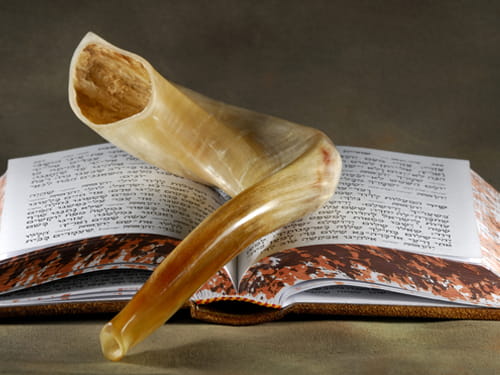This year, the night after we gather for our Thanksgiving feasts, we will kindle the first lights of Hanukkah. Celebrating these two holidays in succession -- one profoundly American and pluralist in spirit, and one which marks the particular pride and unique spiritual and historical legacy we share as Jews -- can be a time for us to reflect on miracles both American and Jewish. But what exactly do we mean by miracles?
In the 13th century, the scholar and mystic Ramban wrote on the subject of miracles in his commentary to the book of Exodus:
Our original ancestors saw miracles on a deeper level. They saw God as both the One who ordered the heavens in the time of creation and does hidden miracles each day. This was not taken for granted by them.
In other words, miracles are happening all the time, we just don't perceive them. Ramban went on to write:
Our ancestors saw miracles in all things--they were rescued from hunger, death, war, and the sword, and were given wealth and respect--a good life...they understood that all things depend on hidden miracles.
With Ramban's understanding of miracles in mind, we might ask: What are today's miracles?
During the past year, continued terror and military conflict have weighed heavily on our hearts. And yet, even in this time of much despair, there have been miracles. Stories of tragedy and unimaginable loss are paired with miraculous stories of courage and heroism. David Bernstein, a retired baker, came out of retirement to train workers who lost their jobs in the World Trade Center. Aisam-Ul-Haq Qurishi, a Pakistani tennis star, refused to buckle under governmental pressure to break with his Israeli doubles partner, Amir Hadad. Yoni Jesner, a Scottish victim of a bus bomb in Tel Aviv, donated his organs and saved a young Palestinian girl. Rami Mahhamid, an Israeli-Arab, was wounded as he helped Israeli police thwart a suicide bomber. Unexpected events unfold and even in a time of disturbing headlines, life triumphs.
The triumph of the Maccabees over the powerful Assyrian-Greek army was seen as a miraculous triumph of the few over the many. But even the victory is symbolic--no matter how great our fears or daunting our challenges, miracles assist our hard work, allowing our convictions to prevail.
Hanukkah also takes place in the ninth month of the Jewish year, alluding to the miracle of birth. It reminds us of the miracle that resides in all new things that give us hope for the future.
Thanksgiving, too, has its miracles. The celebration is based on the most essential source of wonder there is--that life is sustained each year by the ongoing gift of rain and soil that turns tiny seeds into a plentiful harvest. Sharing the bounty of the harvest on Thanksgiving echoes Sukkot, the biblical holiday on which the American tradition is based.
In addition, considering the ethnic and religious divisions that have caused turmoil around the world, America's relative sense of tolerance and cooperation between its many peoples is truly miraculous. Each year, new Americans celebrate Thanksgiving by giving praise for a safety and freedom for their families that they could not have imagined before.
This year, I encourage you and your family or friends to consider the miracles of Thanksgiving and Hanukkah. You might take a few moments as you sit around the table, or rejoice in the light of the menorah, to ask: What miracles have you experienced in your lifetime? What miracles have we, either as Americans, or as a Jewish people, experienced?
By asking, and responding, to these questions, you will be invoking some of the words of the prayer recited when we kindle the Hanukkkah lights. The song Hanerot Hallalu includes the line: "For the miracles and wonders ...in those days and in these days."
May you and your family be doubly blessed this Thanksgiving and Hanukkah.

